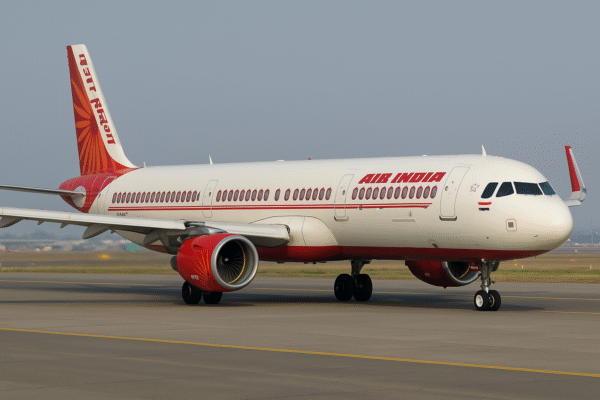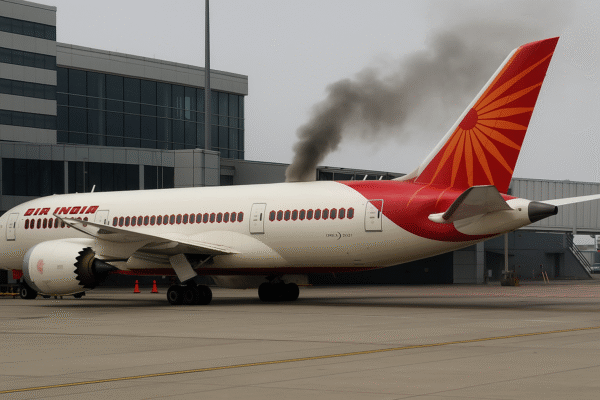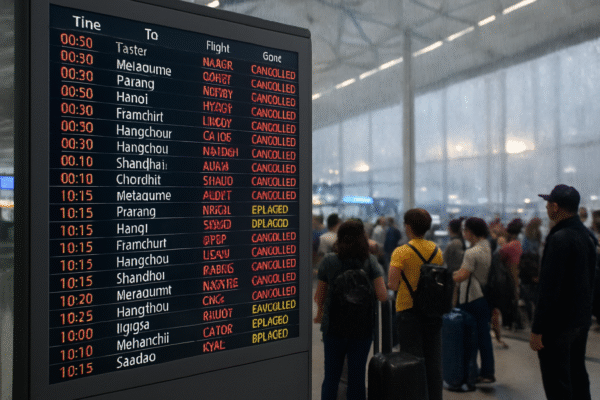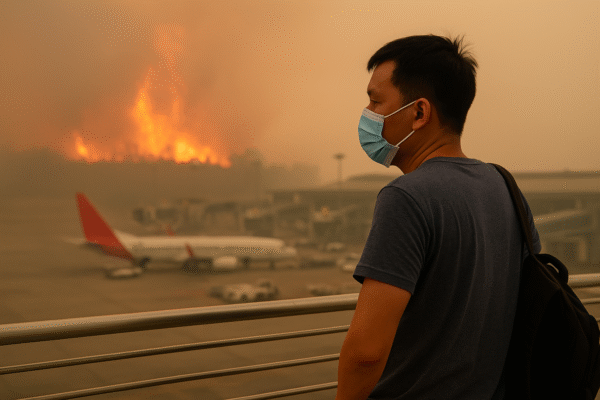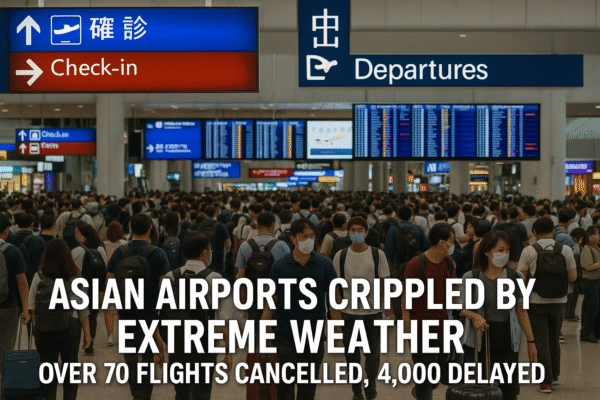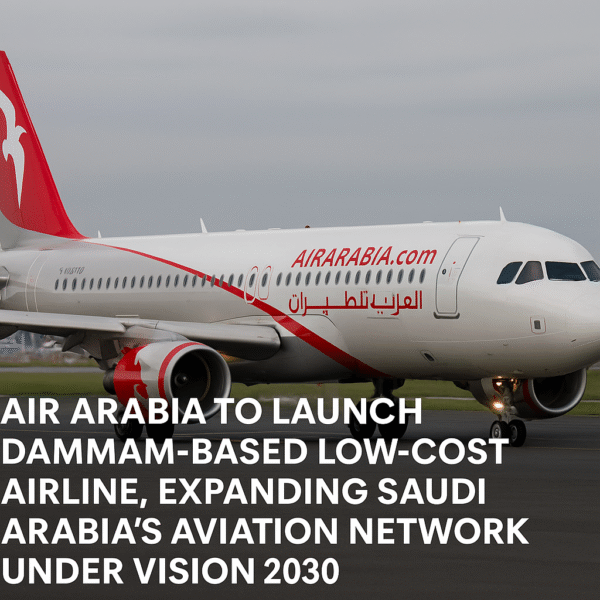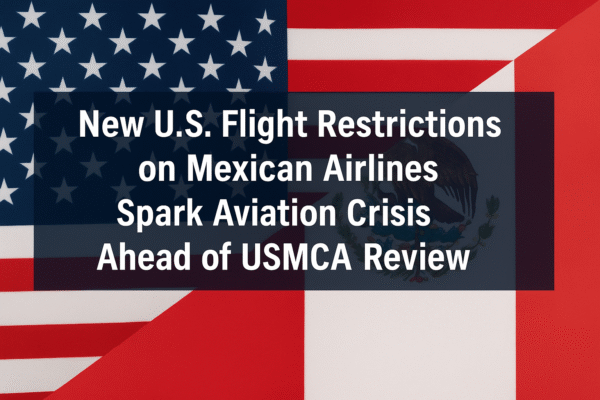In a move that has shaken the aviation sector, the United States government has imposed sweeping new restrictions on Mexican airlines, effective July 19, 2025. The measure, announced by the U.S. Department of Transportation (DOT), requires all Mexican charter operators—both passenger and cargo—to submit detailed flight schedules for approval before operating flights to any point in the United States.
This development marks the latest escalation in the ongoing aviation conflict between Washington and Mexico City, raising concerns about the future of bilateral tourism, trade connectivity, and the longstanding Delta Air Lines–Aeromexico joint venture.
U.S. Responds to Mexico City’s Airport Policy
The move is widely interpreted as a retaliatory response to Mexico’s continued limitations on international airline access to Mexico City’s Benito Juárez International Airport (MEX). Mexican authorities have enforced curbs on flight frequency and cargo capacity at the airport in recent years, citing congestion and infrastructure limitations.
U.S. Secretary of Transportation Sean Duffy pointed to actions taken in 2022 and 2023 that, according to Washington, breached the 2016 bilateral air transport agreement. “Mexico’s disregard for our aviation deal will no longer be tolerated,” Duffy stated. “This is about protecting U.S. carriers and ensuring fair play.”
The restrictions are expected to apply most heavily to operations involving charter flights into major U.S. gateways such as Miami, Los Angeles, and New York, which frequently serve as transit hubs for Mexican leisure and cargo traffic.
Delta–Aeromexico Joint Venture at Risk
One of the most critical implications of the policy shift is the threat it poses to the joint venture between Delta Air Lines and Aeromexico. The two carriers, partners since 2017 under a revenue-sharing agreement, have built an extensive network of transborder routes connecting the U.S. with key Mexican destinations.
Industry analysts warn that forcing Mexican carriers to pre-clear their schedules may undermine route consistency and destabilize commercial coordination. “If U.S. regulators revoke or delay charter approvals, Delta and Aeromexico could lose critical connectivity,” said Fernando Gomez, a Mexico City-based aviation analyst. “This dispute could jeopardize over $800 million in economic activity tied to tourism and employment.”
The DOT has signaled it may take additional steps, including a possible revocation of the Delta–Aeromexico partnership’s antitrust immunity this October—a deadline that looms large over both airlines.
Mexico’s Response: Holding Firm
Mexico’s newly inaugurated President Claudia Sheinbaum responded with measured firmness, stating that her government had not received formal notice from Washington and asserting that current airport regulations would remain unchanged. “We are committed to fair aviation practices and have acted within the framework of our national sovereignty,” Sheinbaum told reporters.
She reaffirmed that no adjustments would be made to Mexico City’s airport slot allocations, which the Mexican aviation authority (AFAC) argues are necessary to avoid overcapacity. However, she also left the door open for “constructive dialogue,” indicating that diplomatic engagement may still be on the horizon.
Industry Concerns Across Borders
The Mexican Air Transportation Chamber (Canaero) voiced concern over the potential disruption, warning that the DOT’s policy could reduce air connectivity, hinder cargo flow, and weaken Mexico’s competitiveness in international aviation. U.S. airline officials, meanwhile, have largely remained silent, likely awaiting further clarification from federal regulators.
Tourism boards and airport authorities on both sides of the border are bracing for fallout. Mexico is the top international destination for American travelers, according to the U.S. National Travel and Tourism Office, with nearly 33 million Americans visiting in 2023. Meanwhile, Mexican travelers represent a significant portion of inbound tourism in U.S. cities such as Houston, San Diego, and Phoenix.
Legal Battles on the Horizon
Legal challenges are likely to follow. Aeromexico has previously defended its joint venture with Delta as essential to sustaining service to regional airports in both countries. Industry observers anticipate that the airlines will seek injunctive relief if U.S. authorities proceed with attempts to dismantle the partnership.
“This is uncharted legal territory,” said Maria Estrada, an international trade lawyer in Washington. “Both the spirit and the text of the U.S.-Mexico-Canada Agreement (USMCA) could come into play in any arbitration process.”
The 2026 six-year review of the USMCA is now expected to include aviation as a major point of contention.
Tourism and Trade in the Crosshairs
The broader implications for U.S.–Mexico tourism and trade are significant. Any decrease in direct flight access could ripple through the hospitality industry, particularly in beach destinations like Cancun, Los Cabos, and Puerto Vallarta, where American tourists make up the majority of international arrivals.
From a commercial standpoint, air cargo disruptions could impact supply chains for automotive, agricultural, and electronics industries that rely on cross-border just-in-time logistics.
What Comes Next?
For now, affected airlines are reviewing the regulation’s language and assessing compliance mechanisms. A DOT spokesperson clarified that the new approval process for Mexican carriers does not prohibit flights, but delays could affect time-sensitive charters and group tours.
In the coming weeks, industry associations, chambers of commerce, and diplomats from both countries are expected to enter negotiations aimed at de-escalation. Until then, travel operators, freight carriers, and travelers will face continued uncertainty.
Final Thoughts
As tensions rise and the political rhetoric intensifies, the aviation dispute between the U.S. and Mexico is poised to shape broader economic diplomacy ahead of the USMCA review. While the skies remain open—for now—the turbulence ahead may yet define the future of cross-border air travel in North America.
For more travel news like this, keep reading Global Travel Wire




